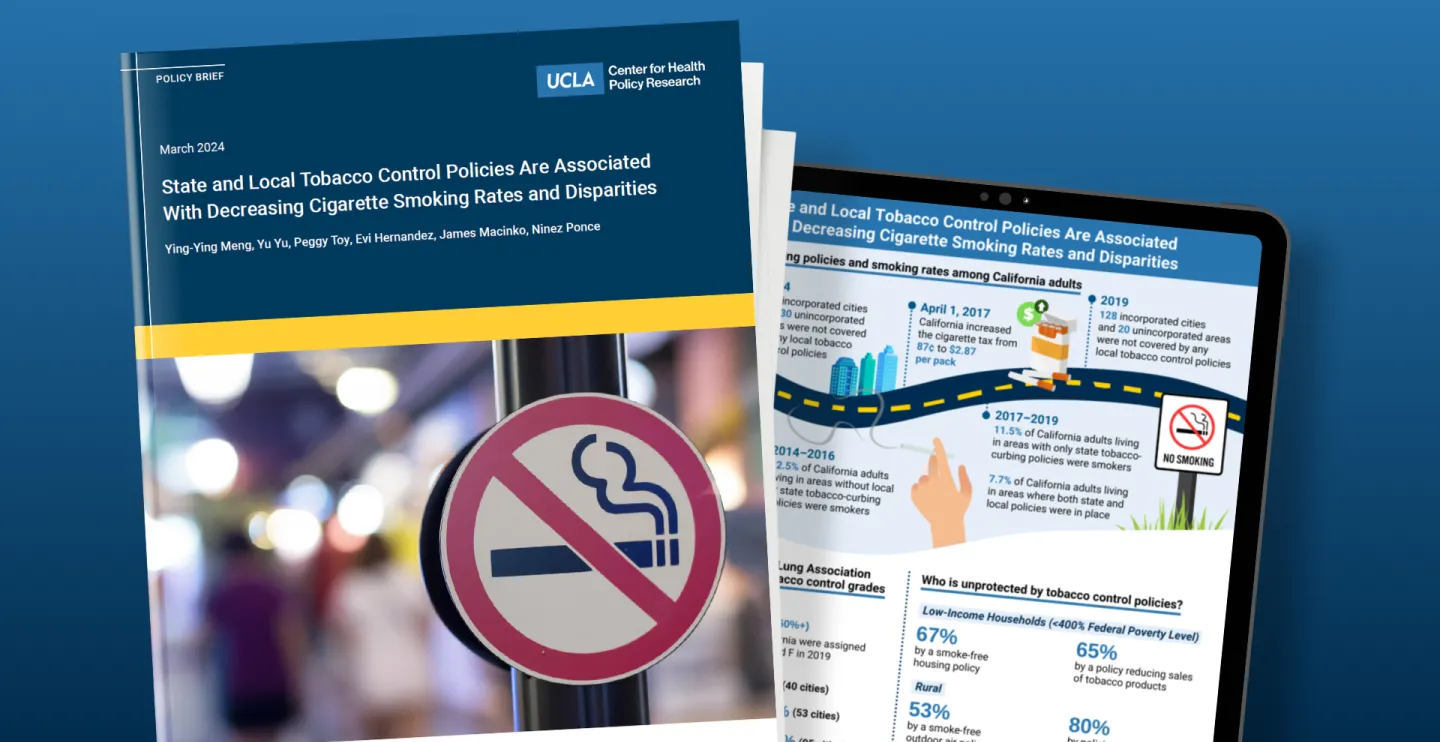Publications Menu
Summary: While California as a whole has made significant progress over the past three decades in reducing rates of cigarette smoking, progress across communities in the state has been uneven. Using the 2014–2019 California Health Interview Survey (CHIS) combined adult data and existing state, county, and city tobacco control policies and neighborhood-level data on social drivers of health, this brief examines variations in local tobacco policies and their relationship with smoking behaviors, particularly among priority populations disproportionately impacted by tobacco.
Findings: In 2019, more than 60% of California cities still had weak or no local tobacco policies. Inequities in protection by tobacco control policies persist across priority populations, especially in areas with low neighborhood socioeconomic status (NSES). Reductions in adult cigarette smoking were greater in cities with strong local tobacco policies than in those with weak or no policies. Strong local policies were also associated with decreased smoking rates among adult (18+) populations disproportionately impacted by the tobacco epidemic, thereby reducing social inequalities in cigarette smoking. This study also found that the positive effect of local tobacco control policies on current adult smoking rates was further enhanced when the state-level tobacco policy (i.e., raising the tax from $0.87 to $2.87 per pack) was enacted in April 2017.
Read the Publication:
- Policy Brief: State and Local Tobacco Control Policies Are Associated with Decreasing Cigarette Smoking Rates and Disparities
- Infographic
Read Related Publications:













